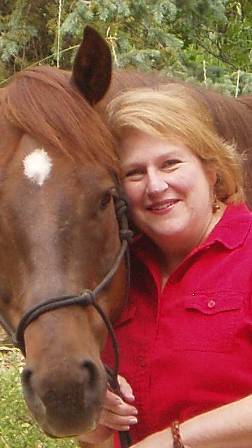
You ought to consider an equine nutrition consultant for your horse, if any of the following apply to you and your horse:
1. You have an athlete – whether your horse works on the ranch, or competes in races, is a hunter/jumper, a dressage artist, a rodeo performer, a competitive trail rider, or even a weekend companion on your favorite trail. All athletes have increased nutritional needs and just feeding more food is not necessarily the best approach.
2. You have a broodmare. Breeding has special considerations, both in promoting a pregnancy and in maintaining one. The health of the foal depends upon a healthy mare. And, once the foal is born, the lactating mare needs your nutritional care to maintain her health and to produce nutritious milk.
3. You have a youngster. Growth take years and having the proper nutrients and building blocks to feed growing bones, muscles, and tissues, is critical toward allowing your colt or filly to reach his or her potential.
4. Your horses are more than performers, they are your family. Horses are special and the bonds we form with them are like no other. For all their large size, they are really quite delicate and they rely on us to keep them healthy. Feeding horses appropriately for their age, body condition, physical requirements, and even their emotional temperament, requires more than hay and sunshine.
5. You have a horse that, in your opinion, really could be healthier. Your horse is fine, basically speaking, but not in glowing health. Perhaps all your horse requires is a little tweaking of his/her diet to add that nutrient that’s lacking.
6. You have an aging horse. As horses get older, their bodies require additional support. The right nutrients, in tune with their level of health, will keep them in top shape for many years. Through correct feeding and attention to specific nutrients, your horse can grow old gracefully and look and feel far younger than his years.
7. Your horse is ill. Perhaps your horse has suffered from laminitis, insulin resistance, Cushing’s disease, arthritis, or allergies, ulcers, recurrent colic, or diarrhea. Maybe your horse is having trouble maintaining a normal weight. Perhaps your horse is recovering from a surgical procedure or is enduring large amounts of stress. Nutritional support, along with proper medical intervention, can be enormously helpful in speeding up healing, boosting the immune system, and even preventing future problems.
8. You’re confused by all the supplements that are available on the market. They all sound great. But, which one is ok to use? And, if you use more than one, you may be concerned about overlapping too many nutrients and causing a new set of problems. A qualified equine nutritionist can help ease the confusion and provide a simple plan for you to follow, using the proper supplements, in the correct amounts.
If you relate to any of the above items, a sound nutritional approach, in combination with good medical care, is critical to your horse’s health.
http://gettyequinenutrition.biz/



